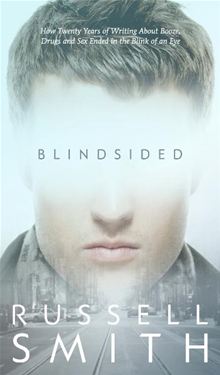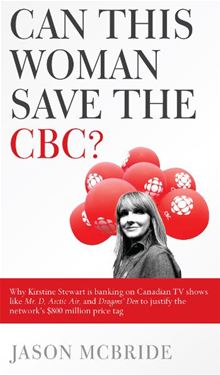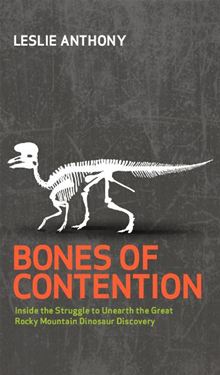The E-Book Show Down: Part Two
E-books are emerging as the latest battleground between writers and print publishers seeking to monetize online content. In this “reset” moment, writers need to be sure they set a fair precedent early on. Read Part One of this three-part series here.
By Derek Finkle
Toronto Life
By early 2012, we had three writers who were being offered contracts to write features for Toronto Life magazine. One writer was novelist and Globe and Mail columnist, Russell Smith. Smith had recently gone through several personal ordeals including almost going blind, and we believed his memoir would make for a compelling single-length e-book.
 By that time, we’d also been in discussions with Toronto Life regarding their freelance contributor agreement for more than a year. Our primary contact with respect to the agreement was Andrew Crane, then the vice-president of operations at St. Joseph Media, which owns Toronto Life. Crane understood and agreed that writers of features for Toronto Life might not want to give away as many rights as they would for a piece of service journalism, such as a restaurant review.
By that time, we’d also been in discussions with Toronto Life regarding their freelance contributor agreement for more than a year. Our primary contact with respect to the agreement was Andrew Crane, then the vice-president of operations at St. Joseph Media, which owns Toronto Life. Crane understood and agreed that writers of features for Toronto Life might not want to give away as many rights as they would for a piece of service journalism, such as a restaurant review.
Eventually, Crane presented us with a draft of what he called a “Feature Contributor Agreement,” which he said would be the agreement Toronto Life would use moving forward for what he called works of “Capital-J Journalism.” The agreement divided rights into two basic groups. About a half-dozen rights were automatically part of the agreement, and another half-dozen or so rights Cra
ne referred to as “Additional Rights.” The latter were optional, only granted if initialed by the contributor. Among the optional rights was the right to publish the feature on Toronto Life’s web site.
When the agency informed a Toronto Life senior editor that we wished to use the new agreement that Crane had devised, and would be holding on to the electronic rights in order to produce an e-book version of Smith’s memoir, the editor sent the agreement, but deducted about 20 percent from the fee originally offered.
We believed that Toronto Life was acting unfairly and punitively towards the writer – I’d never seen a magazine in Canada value web rights at 20 percent of the full fee before – and the agency stood its ground. We were able to do so, in part, because we were negotiating contracts with the magazine for three writers at the time. Eventually, Toronto Life backed off, and all three writers received the feature fees they had initially been offered – without having to give away the electronic rights, or forfeit a portion of the payment for failing to do so.
Russell Smith’s Blindsided: How Twenty Years of Writing about Booze, Drugs and Sex Ended in the Blink of an Eye was released about a monthafter the print version of his memoir hit the stands in Toronto Life. Within a few days, it rose to the number one non-fiction e-book on Kobo.
The May 2012 issue of Toronto Life was the first to hit the stands after Blindsided was released as an e-book. Its cover featured a profile of Toronto mayor Rob Ford entitled “The Loneliest Man in Toronto” by award-winning journalist Marci McDonald. On the magazine’s web site – for the first time ever, as far as I’m aware – instead of posting the feature for readers to read for free, which is what Toronto Life usually does, it had it for sale at $1.99 (the same price as Blindsided) as either a downloadable PDF or as an e-book via Smashwords, an e-book distributor and retailer. Curious to know what royalties McDonald had received for the digital version of her piece, I made some enquiries. Eventually, I discovered that she did not receive any royalties at all.
The same month, the Canadian Writers Group published another e-book following a print-only Toronto Life feature. In that case, the e-book was a profile of the CBC’s Kirstine Stewart by Jason McBride entitled “Can This Woman Save the CBC?”
At about the same time, Toronto Life wanted McBride to write another profile for the magazine, this time about Toronto Transit Commission CEO Andy Byford. The contract the magazine sent over, though, was not the one that Andrew Crane had devised; instead, it was the previous version of the agreement that Crane and I had spent many long hours attempting to improve – one that did not contain any mention of additional or optional rights.
When I inquired, the editor told me that the contract he’d sent for the Byford profile was the magazine’s standard contract. I responded by saying that Crane and I had agreed to use the new agreement moving forward. I was advised that the Crane agreement was a special agreement applicable only to the three pieces earlier in the year, including Russell Smith’s.
That was clearly not my understanding – why would Crane and I have spent so many hours discussing a contract for three stories that hadn’t even been conceived yet? But I couldn’t ask Crane to weigh in because he had recently left the company.
My first discussions about electronic rights at Toronto Life happened back in 2008 and 2009, when I wrote a couple of features for the magazine. At the time, I asked its editor, Sarah Fulford, why she hadn’t bumped writers’ fees, given the growing popularity of the magazine’s website. Fulford told me that the website was “barely profitable.” However, in a recent CBC One on One interview Peter Mansbridge conducted with St. Joseph Media President Douglas Knight, Knight referred to Toronto Life’s web site “one of the most successful magazine web sites in all of North America.”
In any event, in the end, we submitted the Crane version of the agreement for McBride’s story, granting electronic rights to the magazine. Despite repeated communications from the magazine, saying it would not publish McBride’s profile unless we signed the initial agreement offered – which we never did – Toronto Life published the piece anyway.
After the agency invoiced for the story, Fulford said she would not pay McBride for his work unless we signed the agreement without the section for additional rights. Her stance led to the two of us having a telephone conversation, during which she said that while she admired what the agency was doing for Russell Smith and other writers vis-à-vis e-books, she wasn’t happy that Blindsided was for sale while the Toronto Life issue featuring his story was still for sale on the newsstands.
I told her that Smith’s e-book had, in fact, been published almost a month after his story had appeared in the print version of Toronto Life. I also told her that most of the purchasers of Blindsided were from outside Toronto. Through Amazon and Kobo, Russell Smith had reached a readership around the world that he would never have reached if his story had only been published for free on Toronto Life’s web site. I suggested that she was praising the agency for something she now wished to prevent us from doing for other writers.
In the end, Toronto Life withheld McBride’s payment for several weeks beyond thirty days. We continued to refuse to sign the other agreement. It wasn’t until we threatened legal action that Toronto Life paid McBride. He is currently working on another feature profile for the magazine. 
I should also point out that Toronto Life is by no means the only publication feeling threatened by the prospect of writers publishing their own e-books. A similar situation unfolded with Leslie Anthony’s Bones of Contention, another e-book from CWG. The e-book was a much-expanded version of a feature by Anthony that first appeared in Canadian Geographic early in 2012. Canadian Geographic’s standard contributor agreement offers writers a fee in exchange for electronic rights. When we received an agreement for Anthony in 2011, we turned down the $250 e-rights fee and kept the digital rights. Following the release of Bones of Contention, an editor at Canadian Geographic told me that his publisher would no longer permit editors to allow writers to turn down the optional e-rights fee and keep those rights.
Read the final part of our series on e-books: the Canadian Writers Group’s negotiations with the Walrus over digital rights and royalties.



